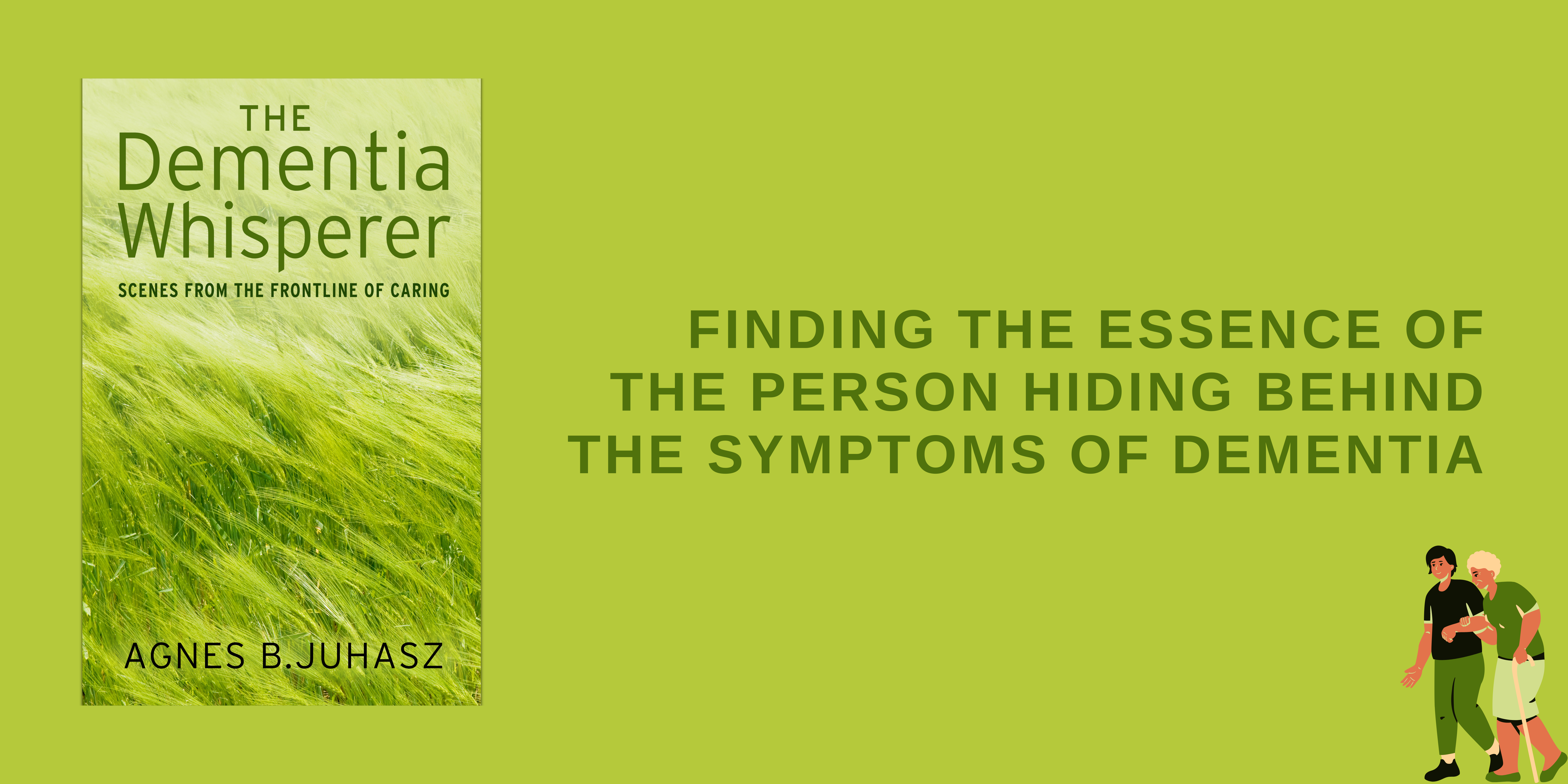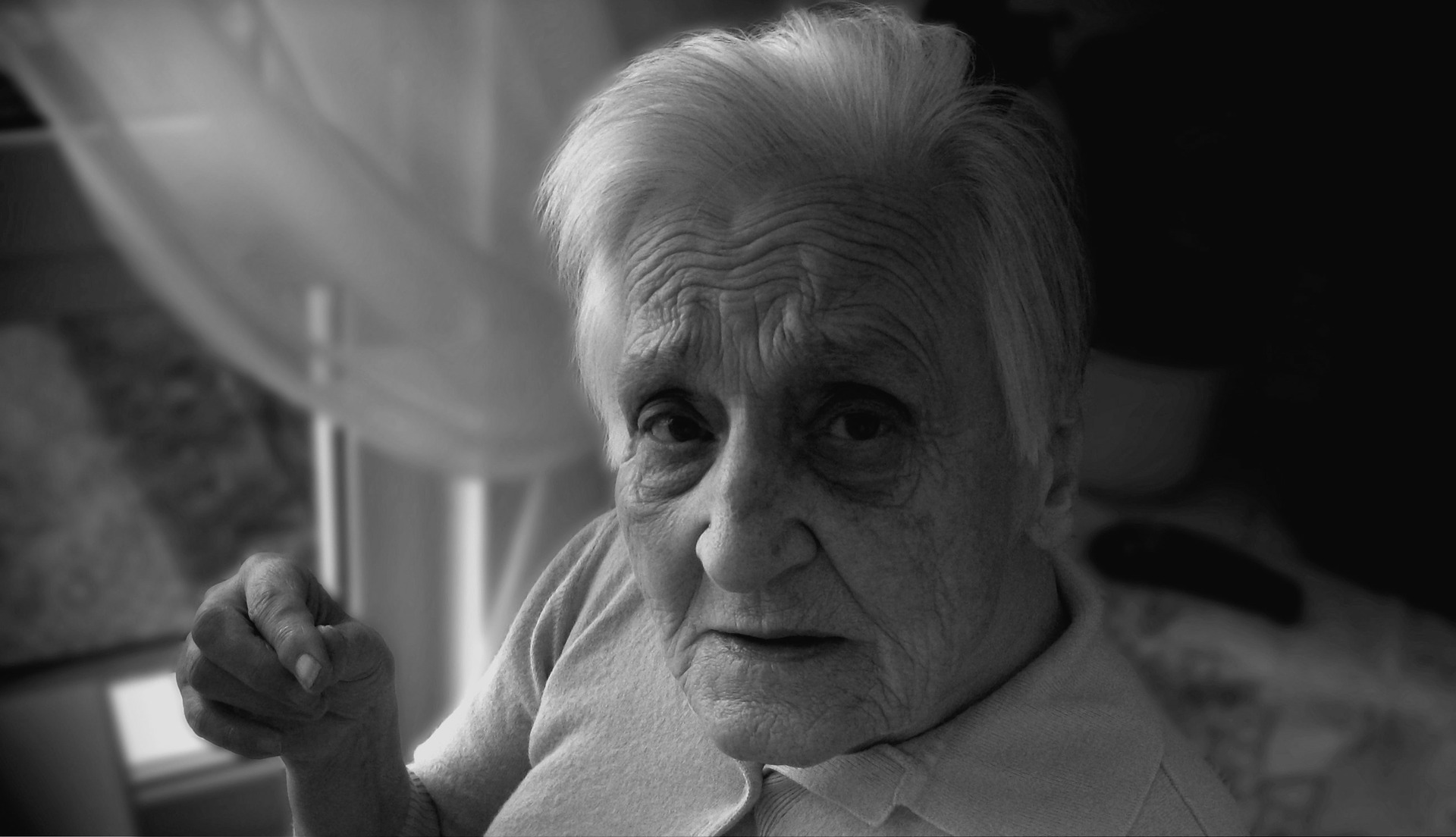
The following is an extract from ‘The Dementia Whisperer’ by Agnes B. Juhasz, which looks at the importance of a ‘person-centred’ approach in dementia care and how to understand the person hidden behind the condition of dementia.
There is a personality in every single human being, an absolutely unique code and pattern built up over a lifetime, and the way to understanding the person hidden behind the condition of dementia must not be blocked by obstacles such as language differences, communication problems, short-term memory loss or other physical and mental causes. This is the fundamental aim of the person-centred
care model I have always used – to help overcome these obstacles while finding out what the person with dementia really needs and what he or she really want. That is why the person must be taken into account first, before the disease.
I cannot emphasise too strongly the importance of the person-centred approach in dementia care. Taking each affected person as an individual, carers must start to learn their life history, habits, hobbies, fears, things they are proud of and all the tiny elements that make them happy or sad. They must get to know the subjective world of dementia, the world of the forever ‘I don’t know’. Carers must try to make contact with the personality that is hidden behind the barricades and search for an indirect connection while constantly checking on the physical needs of each person in their care, ensuring their comfort and doing their best to make them feel at home and safe. It is not good enough only to hear what people with dementia say; carers must let the words reach their innermost minds, if not their souls, if they really want to understand what dementia sufferers are trying to communicate.
Efforts to make a connection with a person with this condition will be much more effective if these guiding principles are kept in mind. In this way, carers can build up a kind of ‘special manual’ that quickly provides the answers to questions about the whys of seemingly odd or
annoying behaviour patterns.
If somebody desperately wants to go ‘home’, insisting that where they are is not the place where they belong, such behaviour can be
understood as communicating the fact that they do not feel safe or comfortable at that moment for a variety of reasons, and that they want
to go somewhere where they will feel reassured.
If the individual keeps saying they must go to work, even though they have been retired for years, it can mean they yearn to be useful and
busy again, and are feeling bored, worthless and useless.
If a person with dementia is looking for a wife or husband who died years earlier, it might highlight an individual’s lack of company and
need for emotional support.
Speaking this unique ‘language’ helps carers not only to understand different situations but means that they can also be the rock on which these people can rely and trust.
During my time working with Sylvia, I have noticed that it has become an involuntary habit of mine to speak to her more slowly and with more articulation than I usually do with other people. She speaks clearly and deliberately, perhaps because of her background in languages, and at first I think I copied her, which incidentally was very good for my English. Now, I believe that my speaking slowly has the added benefit of giving her the chance to think during the conversation and the time to find and select the right words to express as clearly as possible what she really means or wants to say. I also always take care to eliminate every possible barrier or extraneous noise from our verbal connection.
When Sylvia is watching TV, she usually has the volume up high because of her hearing impairment. Although she has got hearing aids, she prefers not to wear them at home, especially when she is watching television, as they make not only the speech but also the background noise far too loud. Naturally there are moments when she wants to say something during a Poirot or Miss Marple episode, and I always automatically turn the volume down immediately to get rid of a very disturbing communication barrier.
In verbal communication I have learnt never to switch topics quickly as people suffering from dementia are unable to follow quick changes of idea. If I have asked a question and I realise that Sylvia’s response has nothing to do with the question asked, or she says something totally incoherent, I try to rephrase what I have just asked or said, and that usually solves the problem.
[…]
Reminiscence therapy is a crucial part of dementia care work. This person-centred approach concentrates on the personal life history and
the most pleasant memories and occasions of the life of a person with the condition. Recalling personal experiences and skills that the person used to have, while showing a lot of love and interest, provides very strong support to the current mental state so that the mind can function at its maximum. If a person’s mental and emotional states are well balanced, they have a positive effect on the person’s physical health too.
‘The Dementia Whisperer’ by Agnes B. Juhasz is based around real-life stories and provides insights into what she has found works and does not work, and candidly reveals her own emotions of frustration, irritation and – sometimes – amusement, and how she has learnt to cope with these.


